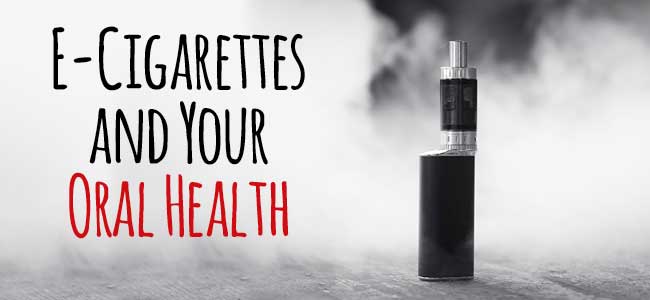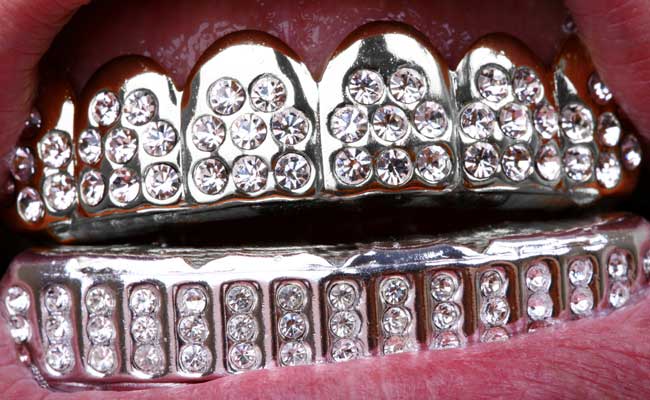Stressed Out: Can Stress Affect Your Teeth?

You have too much to do at work. You have to juggle a million tasks between your children, your spouse, and errands — not to mention your mother-in-law is in town for the weekend. We all have those days, and those days can add immense stress to your life. That stress affects more than just your emotional health; it physically alters you as well. Your mouth already experiences daily wear and tear that you need to prevent as much as possible. If you are too stressed, this adds another layer of factors fighting against the health of your mouth. It starts before you even realize — you are stressed out thinking about everything you need to do, and then you notice you’ve been clenching your teeth for the past few minutes. Depending on how you handle stress, you may be doing this multiple times per day, which takes a toll on your mouth. Signs of Stress Impacting Your Oral Health 1. Poor At Home Oral Hygiene When we are stressed self-care may become less important. We can start over indulging in comfort foods high in carbs, sugar, and caffeine. A poor diet and ignoring our regular oral hygiene routine can lead to plaque buildup, caries, and even tooth loss. 2. Dry Mouth Saliva keeps teeth moist, helps fight bacteria, and helps removes food particles from your teeth. But when you are trying to manage increased stress, your saliva production can be reduced. This can result in increased plaque buildup and a higher likelihood of dental problems. 3. Clenched Jaws The constant muscle tension in your jaw that can result from chronic stress can cause TMD or temporomandibular disorder. This condition causes pain in your temporomandibular joint (TMJ), your jaws, and around your ears. You may also experience difficulty opening your mouth or chewing food or even hear a clicking noise. If left untreated, bruxism can also destroy dental restorations (fillings, crowns, bridges, etc.) that you’ve had done, creating more pain and costing more money. 4. Teeth Grinding Teeth grinding or bruxism is a common symptom of stress or anxiety. This is often an unconscious action so many people are unaware of their teeth grinding, especially if they are grinding their teeth while they sleep. Grinding teeth results in significant wear and tear on your teeth. This can lead to damage to the enamel, chipped teeth, loose teeth, increased sensitivity, and pain in your temples. 5. Decreased Immune Response Stress often has a detrimental effect on your immune system. A reduced immune response makes it harder to fight off infections, and high levels of cortisol ( a hormone related to stress) lead to protein production in the gums causing inflammation and increasing the likelihood of developing gum diseases like gingivitis and periodontitis. 6. Cold Sore Blisters Cold sores are caused by the herpes simplex virus. Many people can go for months without dealing with a cold sore however increased stress is a common trigger. Cold sores typically appear on the lips or corners of the mouth, in some instances they can also appear on your gums leading to difficulty brushing and flossing. How to Prevent Teeth Grinding and Clenching Since one of the main causes of teeth grinding and clenching is stress, the best way to stop is to reduce your stress. Hold on — put down that glass of chardonnay or moonshine you have after work to unwind (alcohol increases the likelihood of teeth grinding while sleeping). Here are some stress-management techniques that will help reduce your overall stress. Exercise. Not only does this release endorphins to help combat stress, but at the end of the day, you’ll be too tired to have stress-inducing thoughts. Autogenic relaxation. This method involves “commanding” your body to relax. This takes a lot of practice but can be very effective once learned. Learn more about autogenic relaxation here. Visualization. Trying to use all five of your senses, imagine a scenario that is relaxing. For example, if you imagine yourself in a forest, listen to the sway of the branches, feel the warm light creeping between the trees, and note the scent of pine needles. Listen to your favorite music. Classical is always a reliable genre to relax to, but listen to the type of music that helps you unwind. These techniques will only work if you allow them to. When using them, ensure you have an open mind and allow yourself to relax. Everyone is different, and it will take time to find what relaxes you, as well as mastering the technique itself. The benefits of stress-management strategies will not only help your teeth-grinding issue but also provide benefits for many other health issues you may be experiencing. Other Stress Reducing Tips to Consider If you notice throughout the day that you are still clenching, stick the tip of your tongue between your teeth. This will force you to relax your jaw muscles. According to the TMJ Association, take anti-inflammatory medicine (such as ibuprofen) to help with swelling and pain until you can get your teeth grinding and TMJ/TMD under control. Check with your physician to see if you are able to take anti-inflammatory medicines. Place a warm washcloth on your jaw before you go to bed to help relax your muscles. If you try these stress-relieving techniques and are still experiencing pain related to clenching and grinding, your Palmdale, CA dentist can do an examination to determine the best course of action. In most cases, your dentist can create a mouth guard/splint to prevent clenching and grinding. Additional Dental Services May Include: Managing pain with a special diet Stretching exercises Anti-inflammatory medications For more information about stress and your dental health, request an appointment at AV Sierra Dental Center by calling 661.202.3542 today. Reference: Stress management. (n.d.). Retrieved July 12, 2016, from https://www.mayoclinic.org/healthy-lifestyle/stress-management/in-depth/relaxation-technique/art-20045368 Teeth Grinding (Bruxism): Causes and Treatments. (n.d.). Retrieved July 12, 2016, from https://www.webmd.com/oral-health/guide/teeth-grinding-bruxism TMJ Association, Ltd. (n.d.). Retrieved July 13, 2016, from https://www.tmj.org/site/page?pageId=257
E-Cigarettes and Your Oral Health: The Smokeless Threat to Your Smile

For many smokers, e-cigarettes seem like the best answer to avoiding the nasty side effects of smoking traditional cigarettes, including the odor and the staining of teeth, skin, and clothing. Though e-cigarettes still contain the highly addictive chemical nicotine, tobacco and other harmful elements are eliminated from the electronic smoking process, or what some refer to as “vaping.” The growing popularity of e-cigarettes and vaping, especially among young people, has caused a rise in concern over the lack of knowledge around the effects it has on health. While clinical studies are currently underway, in 2014 the U.S. Food and Drug Administration (FDA) released a statement saying “e-cigarettes have not been fully studied, so consumers currently don’t know the potential risks of e-cigarettes when used as intended, how much nicotine or other potentially harmful chemicals are being inhaled during use, or whether there are any benefits associated with using these products.” Vaping has a direct effect on oral health. Exposure to e-cigarette aerosol can lead to an increase of bacteria in the mouth, which is associated with gum disease, cavities, and tooth decay. The flavoring added to many e-cigarettes can also lead to cavities, not to mention an increased chance of developing chronic lung diseases. It can also cause dry mouth, inflamed gums, and other issues dentist are able to speak to how these new smoking devices threaten your oral health. Nicotine is harmful to your teeth and gums, even in the absence of tobacco and other chemicals traditionally found in cigarettes. Electronic cigarettes still deliver nicotine to their users through the mouth, throat, and lungs. The following are some of the consequences that come with using smokeless cigarettes. Gum Disease: One of the highest risks of e-cigarettes is an increased risk of gum disease coming from three specific conditions. Nicotine leads to Vasoconstriction, which is the limiting of the blood supply to the gums. When the blood supply to your gums is reduced it makes the more susceptible to infection and can lead to gum recession. Gum disease is caused by plaque bacteria. Smoking dries out your mouth, creating an environment that is more conducive for bacteria growth. Your immune system is weakened as a result of smoking, so infectious diseases can develop at a faster rate. It’s important to note that in addition to the problems caused by vasoconstriction one of the telltale signs of gum disease is swelling of the gums caused by irritation. When nicotine reduces blood flow, preventing swelling, this indication of gum disease can be masked, causing your dentist to miss the symptoms and allowing the disease to progress. Gum Recession: Lack of blood flow to the gums keeps the tissue from receiving the nutrients it needs to survive. Over time the skin dies and recedes. Bad Breath: Nicotine restricts your body’s ability to produce saliva, which makes your mouth vulnerable to harmful bacteria and tooth decay. Combined, dry mouth and bacteria lead to halitosis, which can be embarrassing and can affect your self-esteem. Intense Grinding: As a stimulant, nicotine causes muscles to tighten and spasm against the user’s will. It can cause sleep disturbances such as insomnia and grinding of the teeth. Grinding, especially while sleeping, can be damaging to teeth and result in the loss of tooth enamel, as well as chipping, cracking, and breaking of teeth. If you want to maintain your best oral health, avoiding any type of smoking is recommended. If you do choose to smoke, keeping it to the minimum and maintaining your best at-home oral hygiene practices as well as your routine visits to the dentist is important. If you see signs of periodontal disease (including red, swollen, bleeding, or receding gums) or experience bad breath, painful chewing, or loose teeth, make sure to contact your dentist immediately. There are treatments you can receive that will help keep your teeth and gums in the best possible condition. Two such treatments include: Professional dental cleanings Plaque and tartar are removed from above and below the gumline. If you have gingivitis or signs of periodontitis, you will be required to have this level of cleaning twice a year or more. Scaling and root planing Plaque and tartar are scraped away from both above and below the gumline while under local anesthetic (scaling). Rough spots on the tooth root are then smoothed out (planing). Locally applied medications, such as antimicrobials and antibiotics, may be used. If you are experiencing jaw tightness or pain, and you think you might be grinding your teeth, your provider can fit you with a mouthguard that will protect your teeth while you sleep. It can be difficult to share your habits with your dentist. At AV Sierra Dental Center, we treat our patients with respect and compassion. We are here to help you be your healthiest self. If you use e-cigarettes and are concerned about how they may be affecting your oral health, call us today and set up a consultation. We will help you protect your teeth and maintain your natural smile.
What Do I Do About My Wisdom Teeth?

“People grow through experience if they meet life honestly and courageously. This is how character is built.” – Quotation attributed to Eleanor Roosevelt’s wisdom teeth Your mouth evolves throughtout your lifetime. One of the most common dental milestones is the appearance of your wisdom teeth. Your Wisdom teeth are your third molars and usually come in between the ages of 17 and 21. Historically, these teeth have been called wisdom teeth because they come through at a more mature age. In fact, wisdom teeth, which earned their name because they emerge at the onset of adulthood, aren’t all that wise. (Most people believe Eleanor Roosevelt came up with that statement on her own, but it’s no coincidence that it occurred after her wisdom teeth came in!) When they come through correctly, healthy wisdom teeth are simply additional teeth that can help you chew. Scientists believe that wisdom teeth helped our ancestors with a diet that was much harder on their teeth than our diet is on ours. However, they only begin to come in when people are around the age of 17 to 21 years of age. Since they emerge so late, after your other teeth are well-established, wisdom teeth often create unnecessary problems in your mouth. The complications that can arise from wisdom teeth often overshadow the risks. What Can Go Wrong? The main issue is that wisdom teeth become impacted. This means that your wisdom teeth cannot fully emerge because your gums, back molars, or a combination of both are blocking them. Impacted wisdom teeth can create swelling and pain in your mouth. Additionally, they can be a difficult to keep clean, making you more likely to get cavities and gum disease. Why Not Wait Until You Know There Is an Issue? There are three good reasons to remove wisdom teeth before they cause problems, aside from the fact that they’re not necessary to help us process tough foods anymore. When your wisdom teeth first emerge, the roots aren’t as established, making them easier to remove. Wisdom teeth roots can grow near nerves, creating complications should you need to remove them later. Recovery time is typically longer if you wait to get your wisdom teeth removed, with possible additional symptoms including excessive bleeding, numbness, and reduced jaw movement. What Should I Do? There is some debate if one should get their wisdom teeth taken out as soon as they come in. People with impacted wisdom teeth or other related complications should follow the advice of their dentist and take the proper action. However, for many people, wisdom teeth can emerge with few or no complications. If this is the case for you, dental hygiene will become even more important to avoid cavities and gum disease. You will also want to stay consistent with your x-rays and professional cleaning visits to ensure your wisdom teeth stay healthy and clean. Even if your wisdom teeth initially come in healthy, there’s no guarantee they won’t cause complications in the future. They could cause problems later in your life, which is a reason to just go ahead and have your wisdom teeth removed. Whatever you choose, your dentist will be able to track your wisdom teeth as and after they emerge. If you have questions about your wisdom teeth, please call or make an appointment with us today!
Oral Care in the Wilderness – Leave No Tooth Behind

Have you ever watched shows like Lost or movies like Cast Away and wonder how the teeth of these people must feel like after an extended stay on a remote island? Fortunately, there are a few things they (or you, if you go camping or get stranded) can do to help maintain a healthy smile when you don’t have access to a dentist or minty toothpaste. When you don’t have a toothbrush and floss, the concept of oral hygiene remains the same. Keep food debris from sticking around inside your mouth, and agitate the bacteria so plaque and tartar don’t develop. In a bind, you can use a clean cloth or part of your t-shirt. Put the cloth on your finger and rub your teeth and gums as you would with a toothbrush. This method is good for minor stays in the wilderness, but won’t provide optimal care in the long run. Use What’s Around You In the unfortunate situation you are without proper care for an indeterminate amount of time, you can find or adapt natural tools from your surroundings to clean your teeth. Chewing stick. Find a tree that has fibrous branches. Break off a toothbrush sized twig. Chew on one end to fray that part of the twig, which can now be used in lieu of an actual toothbrush. As strange as this may sound, a lot of cultures around the world still use chewing sticks for their dental hygiene. Due to the chemical composition of some trees (apple, fig, bamboo, and many more), they can help protect your teeth when chewed on. Small bones. If you are hunting for food, save some of the smaller bones. They can be used as toothpicks, removing food debris from between your teeth. Hair. This may seem gross, but if you didn’t bat an eye at small bones, you may as well try this trick too. If you have hair is long enough, you can use it as a substitute for floss. Water. Rinse with water (sterilized, if possible) to keep your mouth clean after brushing. Avoid problem foods. Without access to proper dental care, it’s best to avoid foods that can damage your teeth. Try not to eat fruits with a high acidity level, or foods that easily get stuck in your teeth. Now you know how Tom Hanks kept his smile going stuck on an island for three years. (And you thought it was Hollywood make up artists?) While these options may sound less than appealing, they could be the difference between having healthy or damaged teeth while out in the wilderness. That and no one likes the feeling of fuzzy teeth. If you’ve just returned from the wild, or if you’d just like to stay up to date on your dental visits, please don’t hesitate to give us a call!
A Brief History of Grills

A Brief History of “Grills” Grills (or grillz) are, if not popular, at least fairly recognizable these days. Made of precious metals (gold and platinum being the most common) and often studded with diamonds, most grills are removable and worn over the front teeth. But where do they come from? Although many people would point to Nelly and his 2005 song, “Grillz,” as the starting point for the trend, they’re actually much older than that. (And no, we’re not just talking about rappers like Slick Rick, Flavor Flav, and Big Daddy Kane from the 80s and 90s, either). We’re talking ancient history. In ancient Italy, between 800 and 200 BC, wealthy Etruscan women wore teeth woven together with gold wire the thickness of a rubber band. The wire held together teeth that had been removed and were placed back into the mouth, so they made eating difficult. The practice wasn’t necessarily common, but archaeologists found documentation of around 20 sets of teeth woven together in this way. Etruscan civilization vanished as the Romans took over Italy, and this fashion trend died with it. In Latin America, Mayans actually cut small holes into their teeth and filled them with precious stones, typically jade. Again, this was a trend that only royalty and the wealthy could afford. Although the Mayan civilization has disappeared, many people in southeastern Mexico, Belize, Honduras, and Guatemala still wear gold tooth jewelry today. In ancient Filipino myths, the creator of the world, a deity named Melu, had gold teeth—and during what was the Middle Ages in Europe, Filipinos were filing down their teeth and decorating them with gold. Some of these decorations included gold bands that covered the entire front row of teeth; the oldest date to around 1300 AD. As the Renaissance began in Europe, dentistry was becoming more scientific and less superstitious—and Giovanni de Arcoli, a 15th century Italian professor of medicine, became the first author known to recommend filling cavities with gold to preserve them. Grills started appearing in rap and hip hop videos in the 80s, and became even more popular as Southern rap began to take off in the 90s and early 2000s. And now, they’ve jumped into mainstream culture, as celebrities like Madonna, Miley Cyrus, Katy Perry, and even Ryan Lochte have sported them in recent years. You might expect a dentist to come out against grillz as a health hazard, but no studies have proven that they’re bad for your teeth. As long as they’re removed and the teeth are brushed and flossed as appropriate, they shouldn’t cause health problems. Some metals can cause irritation; if it causes a rash, or bleeding, or other problems, just stop. Similarly, don’t clean them with anything toxic to ingest (like most jewelry cleaners), and don’t try to attach them permanently to your teeth with glue. But if you want to wear a grill, and you use some common sense and take care of your teeth, you’ll be part of a long tradition of dental jewelry. We can’t recommend a jeweler to create your grill, but if you have any questions about dental instruments—either ornamental or for health reasons—please give us a call at 661.202.3542 and we’ll be happy to answer your questions.
